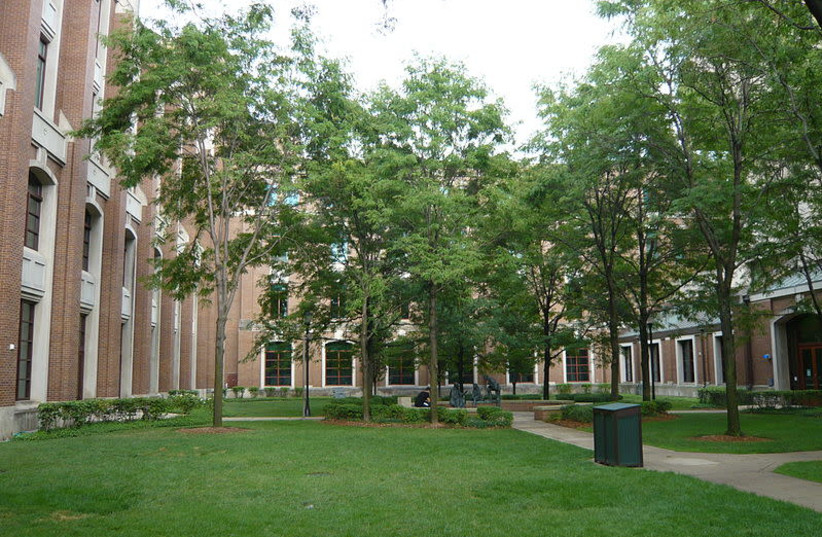Antisemitism watchdog group AMCHA Initiative on Wednesday released new research demonstrating the insufficiency of school policies when it comes to addressing the main source of antisemitism at universities in the United States.
Antisemitism in national spotlight after high-profile incidents
The report comes after a string of antisemitic incidents involving public figures such as former US President Donald Trump, rapper Kanye West and basketball player Kyrie Irving.
In the report, titled "Falling Through the Cracks: How School Policies Deny Jewish Students Equal Protection from Campus Antisemitism," researchers compared the two main ways that universities protect students from harassment and bigotry: Non-Discrimination and Harassment Policies and Student Codes of Conduct.
Non-Discrimination and Harassment Policies are meant to combat harassment against students based on their identity. According to AMCHA, although most minority groups are protected by such policies, Jews who are targeted by anti-Zionist-motivated harassment – the most common form of antisemitism on college and university campuses – are often excluded from these protections due to the views of certain faculty members. Students who are not covered by these policies usually need to appeal based on their school's Code of Conduct.

When AMCHA compared Non-Discrimination and Harassment Policies and Student Codes of Conduct on 100 campuses most popular with Jewish students, they found that no school gave as much protection to victims of harassment under its Code of Conduct as it did under its Harassment Policy, potentially leaving Jewish students uniquely vulnerable to harassment.
Among other things, the report found that despite the fact that every school’s Harassment Policy included verbal abuse as a form of harassment, almost a quarter of their Codes of Conduct did not classify verbal abuse as a prohibited behavior. “Jewish students at a school with such a Code of Conduct who are not considered eligible for protection under the Harassment Policy have little or no administrative recourse from verbal harassment,” AMCHA noted.
Moreover, though every school’s Harassment Policy listed harassment as limiting, interfering with or impairing students' ability to participate in campus life, less than 40% of their Codes of Conduct described harassing behavior as doing so. AMCHA noted that these schools are “less likely to treat such behavior as seriously as they do when directed at members of ‘protected’ identity groups.”
Furthermore, over a third of the schools affirmed in their Codes of Conduct that harassing “protected” students would be punished more harshly than harassing “unprotected” students.
Additionally, though every school's Harassment Policy included protections from retaliation for students filing complaints, nearly half of the schools' Codes of Conduct did not include retaliation protections, which AMCHA said discourages Jewish students who are ineligible for protection under the Harassment Policy from reporting incidents of harassment due to fear of retaliation.
Finally, “In more than three-quarters of the schools, complaints of harassment targeting students in ‘protected’ identity groups were handled by a special administrative office that focused on handling complaints of harassment and discrimination exclusively, while complaints about harassing conduct directed at Jewish students covered only by the school’s Code of Conduct were handled by the same office that handles all student conduct complaints,” the watchdog group added.
“Jewish students are left neglected, vulnerable, exposed and without recourse against antisemitic harassment”
Tammi Rossman-Benjamin, director of AMCHA
“Whether antisemitism emanates from the Right, in the form of classic antisemitism, or from the Left, in the form of anti-Zionism, the rhetoric used to portray Jews is becoming increasingly similar: Jews possess undue power and privilege, which they use to control and oppress others,” said Tammi Rossman-Benjamin, director of AMCHA. “And while the antisemitism may be directed to different audiences, its intended effect is the same: to portray Jews as a threat to the common good, whose malevolent influence must be challenged and neutralized.
"Yet, as the problem is rapidly becoming more acute, with a new massive assault on Jewish identity on campuses nationwide, a thorough examination of university policies reveals Jewish students are left neglected, vulnerable, exposed and without recourse against antisemitic harassment.”
